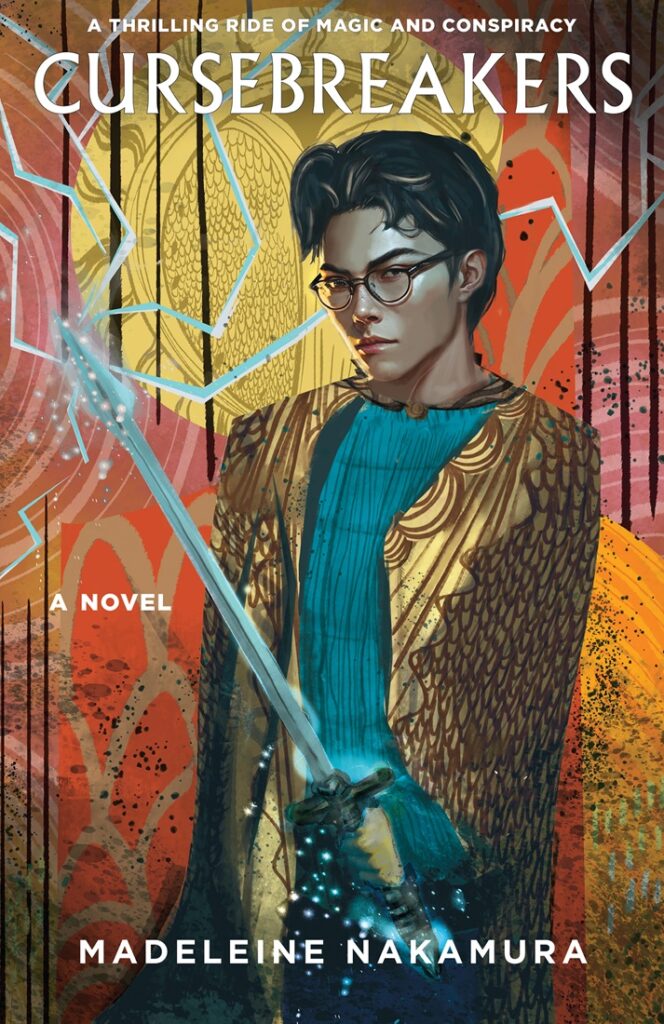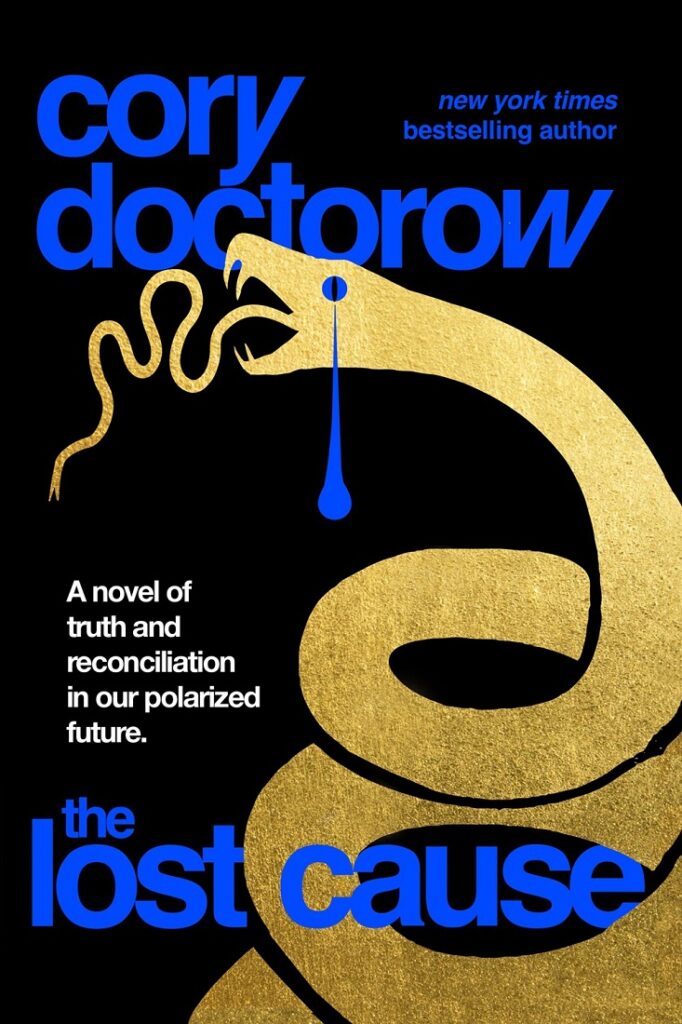
soupçon/ˈsuːpsɒn,ˈsuːpsɒ̃/ noun
1. a very small quantity of something; a slight trace, as of a particular taste or flavorSunday Soupçons is where I scribble mini-reviews for books I don’t have the brainspace/eloquence/smarts to write about in depth – or if I just don’t have anything interesting to say beyond I LIKED IT AND YOU SHOULD READ IT TOO!
A fantasy conspiracy and a hopepunk cli-fi!


Genres: Fantasy, Contemporary or Urban Fantasy, Queer Protagonists
Representation: MLM MC with bipolar disorder
PoV: First-person, present-tense
ISBN: B0C9S8ZL1J
Goodreads

Adrien Desfourneaux, professor of magic, must survive his own failing mental health and a tenuous partnership with a dangerous ally in order to save the city of Astrum from a spreading curse.
Adrien Desfourneaux, professor of magic and disgraced ex-physician, has discovered a conspiracy. Someone is inflicting magical comas on the inhabitants of the massive city of Astrum, and no one knows how or why. Caught between a faction of scheming magical academics and an explosive schism in the ranks of Astrum’s power-hungry military, Adrien is swallowed by the growing chaos. Alongside Gennady, an unruly, damaged young soldier, and Malise, a brilliant healer and Adrien’s best friend, Adrien searches for a way to stop the spreading curse before the city implodes. He must survive his own bipolar disorder, his self-destructive tendencies, and his entanglement with the man who doesn’t love him back.
Cursebreakers is a book I admire more than I enjoyed; I think it’s objectively a really good book, something pretty special, but I didn’t actually have fun reading it. I think there’s a decent chance that was more a problem with me than with the book, though – it’s not clear to me.
Nakamura has created a deeply flawed character in Adrien – and well he knows it. But I didn’t find Adrien whiny; he definitely has issues with self-loathing, and has no patience or compassion for himself, and usually that’s a major turn-off for me – but here the effect was to make me want to wrap him up in a big warm hug. He gives himself no leeway, no sympathy, no kindness, and so Nakamura drew those feelings out of me instead, making me feel sympathetic and protective of him.
I thought the difficulties of his condition – bipolar disorder, renamed akrasia in his world – came through loud and clear in a way that didn’t make this an Issues Book. Instead the focus is on the conspiracy, and the complicated (and thus very interesting) relationship that develops between Adrien and Gennady. If you’re looking for a romance, this isn’t it, but neither is it something as simple as typical friendship, and I thought that was great – I feel like I don’t see many strong platonic bonds between male characters very often, and never a dynamic this difficult to put a name to! It’s not romantic, it’s not mentor/mentee, it’s not even comrades-in-arms – I don’t know what to call it, but that was what made it fascinating: that it’s complicated and unusual enough that I can’t stick a label on it.
Things moved quickly, but they felt slow, and I never had a very clear grasp of what Adrien’s would looked like or exactly how it worked – it wasn’t until nearly the end of the book that we learn this land is ruled by twin empresses, if I remember correctly. I was never very sure of how things fit together. But that’s offset quite a bit by how narrow the book’s focus is: by zooming in so tightly on Adrien, it…almost doesn’t matter that the big picture is so blurry? Because the big picture is pretty irrelevant; Cursebreakers is so character-driven that we don’t really need more than Adrien’s immediate surroundings for the show to go on.
Like I said: I didn’t love it. But I think it’s objectively pretty good, and definitely interesting, and I’ll be keeping an eye out for future works by Nakamura!

Genres: Queer Protagonists, Sci Fi
Representation: Queer MC, QBIPOC secondary cast
PoV: First-person, past-tense
ISBN: B0BQ69W3VG
Goodreads

It’s thirty years from now. We’re making progress, mitigating climate change, slowly but surely. But what about all the angry old people who can’t let go?
For young Americans a generation from now, climate change isn't controversial. It's just an overwhelming fact of life. And so are the great efforts to contain and mitigate it. Entire cities are being moved inland from the rising seas. Vast clean-energy projects are springing up everywhere. Disaster relief, the mitigation of floods and superstorms, has become a skill for which tens of millions of people are trained every year. The effort is global. It employs everyone who wants to work. Even when national politics oscillates back to right-wing leaders, the momentum is too great; these vast programs cannot be stopped in their tracks.
But there are still those Americans, mostly elderly, who cling to their red baseball caps, their grievances, their huge vehicles, their anger. To their "alternative" news sources that reassure them that their resentment is right and pure and that "climate change" is just a giant scam.
And they're your grandfather, your uncle, your great-aunt. And they're not going anywhere. And they’re armed to the teeth.
The Lost Cause What do we do about people who cling to the belief that their own children are the enemy? When, in fact, they're often the elders that we love?
I received this book for free from the publisher via NetGalley in exchange for an honest review. This does not affect my opinion of the book or the content of my review.
Lost Cause is the kind of book I invented Sunday Soupçons for, because I…really can’t think of anything to say about it. It’s an excellent, compulsive read, like pretty much everything Doctorow writes; it paints a very believable picture of the future, not just in terms of climate disaster but in the kind of tech and institutions likely to come into being in the next few decades (a fair bit of it is clearly based or inspired by things that exist now). It took a long time for me to finish it – I read it very slowly, because it tackles a lot of heavy, depressing, hard-to-deal-with topics head-on, and there were a lot of days I couldn’t deal with that, or didn’t want to.
Which makes me part of the problem, I guess: a significant part of Lost Cause is a desperate plea for people to start acting, to stop sticking their heads in the sand and face what’s coming. But this is Doctorow, which means it’s less moralising and a lot more practical, giving examples via fiction of what humanity is going to have to deal with and exploring how to deal with those things. I can see some readers being miffed that this is, in a lot of ways, kind of a case study rather than a novel – but personally I think it does great as a novel. This is a compulsive, fast-paced story that just happens to also be something of an instruction manual for surviving the future, particularly for middle-class white people who haven’t been seriously affected by climate change yet, who can go days or weeks without thinking about it at all. It’s a wake-up call to the reality of the situation, and an incisive manifesto on how not only is giving up not an option, there’s no reason to be hopeless; there’s so much that can be done, if we just get moving and do it.
Here’s a thing about the law: there aren’t enough cops to enforce the law if people don’t believe in it.
I do think the blurb/tagline are misleading though: this really isn’t a novel of ‘reconciliation’ between the MAGA types and the rest of us. If anything, the conclusion Lost Cause comes to is that we just have to go on despite, around, and if necessary through them.
Despite all the Big Scary Topics, I’d call this a good read – I enjoyed it, it gave me plenty to think about (which I like), and it made me hopeful; besides which, it’s Doctorow, so the writing is super readable and the characters are all so real they feel like they’re about to walk off the page. I’d definitely recommend it for people scared of how big and unstoppable climate change feels – it was a relief to see someone say ‘this is how we get through it’ in a practical and approachable, easy-to-understand way. And I imagine a lot of others will feel the same!
What have you been reading this week?







Leave a Reply